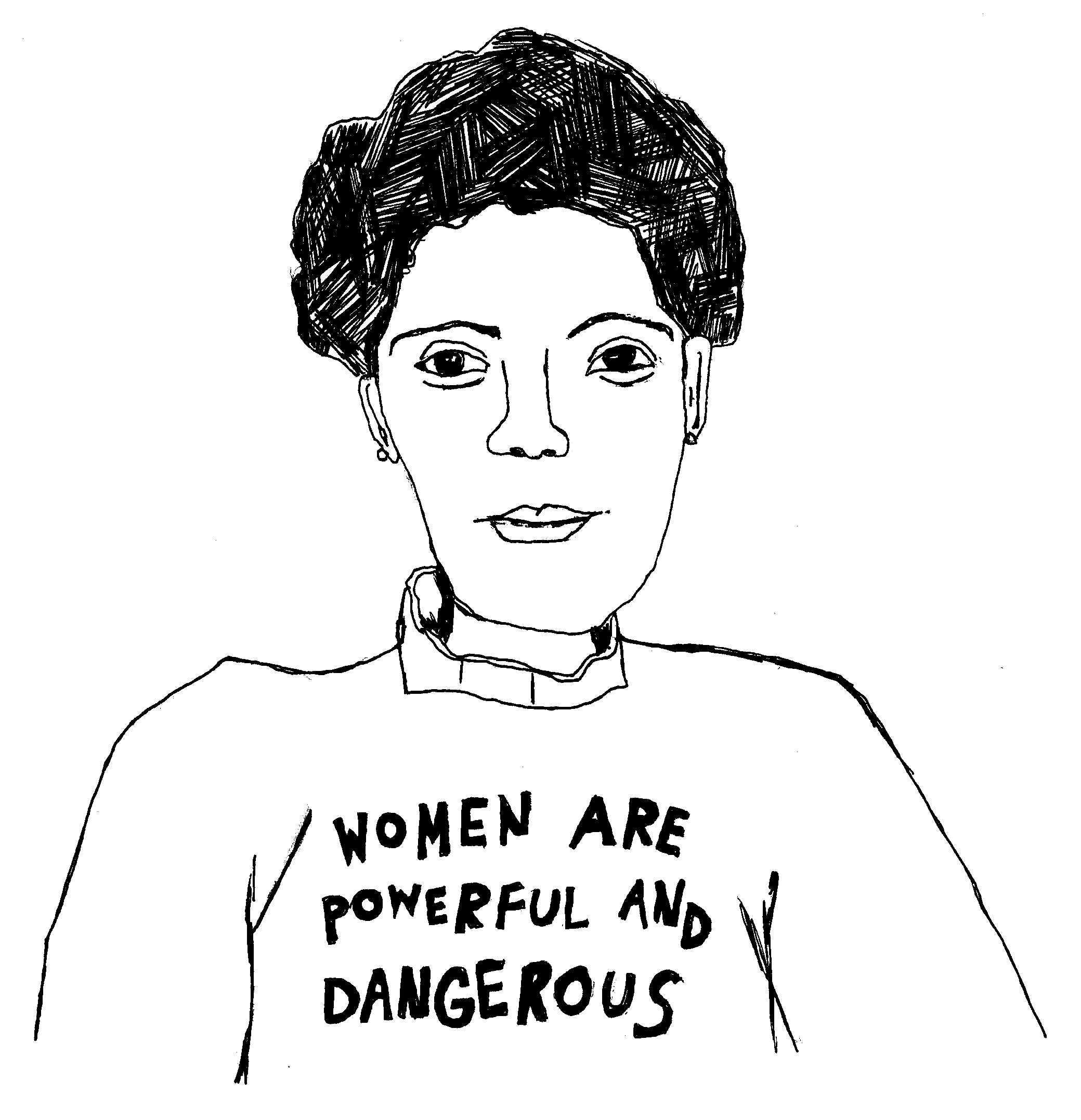Lore of young brilliance: Audre Lorde and unapologetic feminism
April 21, 2017
 This
piece represents the opinion of the author
.
This
piece represents the opinion of the author
.
My beloved friend Caroline likes writing, Craisins, GSWS Jeopardy and dancing. She dislikes the Chainsmokers, New England ignorance of Midwest geography and the modern commodification of feminism. As the result of more major/minor switches than anyone else I know, she is a proud Gender, Sexuality, and Women’s Studies (GSWS)/German double major with a math minor—Caroline leaves no stone unturned. She is a force of quiet knowledge; I admire her own educated opinions and also her ability to listen equally to the opinions of other people—both those less educated, and those who offer her new opportunities to think and learn.
Caroline’s choice for the book that has most influenced her is “Sister Outsider,” a collection of essays and speeches written by the black lesbian feminist Audre Lorde. I was familiar with Lorde’s poetry and also with the lore of her young brilliance that remains in the hallways of the high school we both attended. I had never read her non-fiction, and I was dually excited, firstly because I admire Lorde’s artistic work, and secondly because I was eager for a glimpse into the feminist works that have shaped and informed Caroline since we met on the quad as eager first-years, four years ago.
Audre Lorde does not accept the title of theorist. She is a poet and an artist, but her nonfiction is thought-provoking and powerful, grounded in questions of race, gender and sexuality. She writes about surviving cancer, she writes about raising a son who has two mothers, she writes about sexism perpetrated by black men against black women and racism perpetrated by white women against black women. Lorde discusses her own experiences without pretense of offering advice but rather with that calm conviction of sharing words she really believes in. All the while, she exercises a clarity of language and thought that demands her reader listen.
In “The Transformation of Silence into Language and Action,” Lorde tells her reader to hear the words of women: “to seek those words out, to read them and share them and examine them in their pertinence to our lives. That we not hide behind the mockeries of separations that have been imposed upon us and which so often we accept as our own.” I was struck not only by Lorde’s urgent call upon readers to learn from and share experiences different from their own, but also by how I see Caroline tackling this challenge in her own life.
It is so easy to wince away from the experiences of others, and it is easy to demean differences by focusing on one similarity, such as in white feminist movements that demand unity through gender without honoring realities of race, or even sexuality or class. Lorde calls for something much deeper: “Black feminism is not white feminism in blackface” is the opening line of “Sexism: An American Disease in Blackface.”
There are many beautiful essays and speeches in the collection—“Uses of the Erotic: The Erotic as Power,” is a lyrical and linguistic joy, while “Man Child: A Black Lesbian Feminist’s Response” is an enlightening and loving portrait of motherhood. While some of the pieces ring of the 1980s, they do not feel dated so much as prescient.
It’s important to me to identify as a feminist, but also to push back against the idea of feminism as static—and that’s important to Caroline, too. I give thanks to Caroline, for being the sort of friend who leads you right to the source and is always ready for a good long conversation later. And I give thanks to Audre Lorde. Her brand of unapologetic and thoughtful feminism serves as a reminder not only of all there is to learn from those whose experiences differ from our own, but also from those who have come before—and the importance of listening to them.


Comments
Before submitting a comment, please review our comment policy. Some key points from the policy: